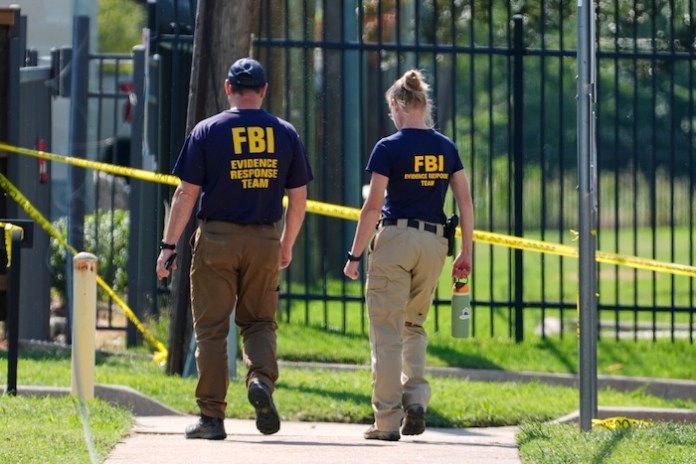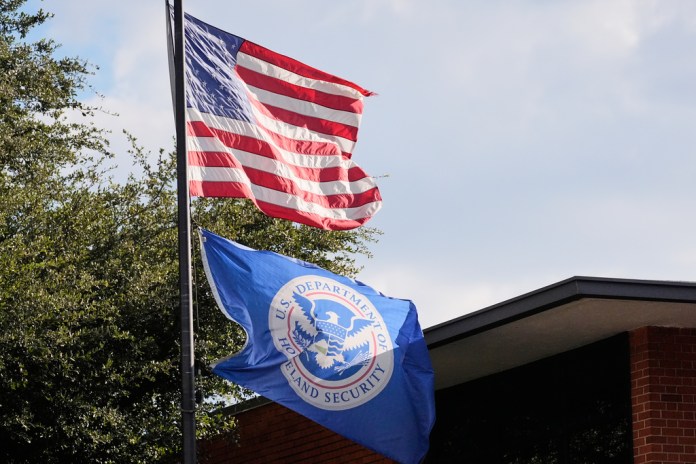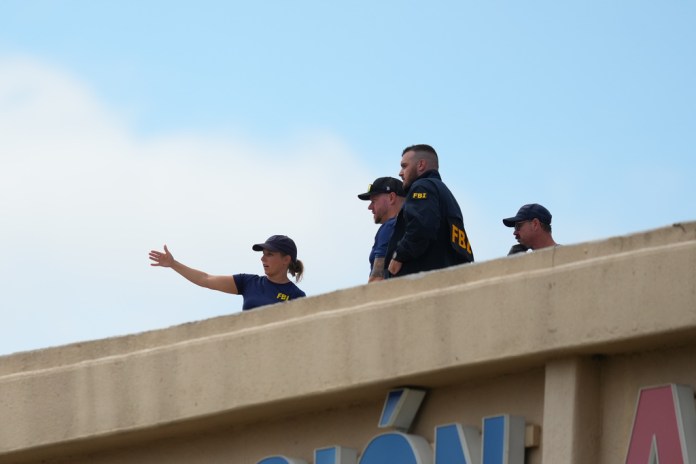Former Dallas Federal Reserve Head: U.S. Regional Banking Crisis More Serious Than We Understand
There have been three major bank failures so far this year, and some experts claim the carnage may not yet be at an end.Former Federal Reserve Bank of Dallas President Robert Kaplan told Bloomberg Television this week that he thinks “the banking situation may well be more serious than we currently understand.”
Silicon Valley Bank collapsed in March, marking the second-largest bank failure in U.S. history. Signature Bank, which had $110 billion in assets at the end of 2022, making it the 29th largest U.S. bank at the time, failed shortly thereafter. by Taboolaby TaboolaSponsored LinksSponsored LinksPromoted LinksPromoted LinksYou May Like Ooni Pizza Ovens Say Hello to the Next Generation of Outdoor Cooking Technology.Ooni Pizza OvensShop NowUndo Glenn Beck: It’s time to get your money out of THESE 7 big banks. Here’s why.Undo MIRAI SPEAKER Background-noise-cutting TV Speaker – Understand TV dialogue againMIRAI SPEAKERShop NowUndo Sen. Ted Cruz introduces bill to prevent the Fed from establishing a central bank digital currencyUndo CarsGenius Price Alert: These Leftover SUVs Are Now Under $10k (Deal Of The Day)CarsGeniusSearch NowUndo
Americans have pulled nearly $100 billion out of banks since, according to Fox Business.
Biden Treasury Secretary Janet Yellen claimed in mid-March that the “banking system is sound.” However, just weeks later, First Republic Bank, which had assets over $200 billion and catered to wealthy elites, similarly failed.
First Republic’s demise represented the second-largest banking failure in American history, trailing the 2008 collapse of Washington Mutual.
Over the weekend, regulators seized First Republic and sold the bank’s deposits and a “substantial majority of assets” to JPMorgan Chase, the largest U.S. bank. JPMorgan similarly absorbed Washington Mutual after its collapse.
They don’t want you to see this … Big Tech does its best to limit what news you see. Make sure you see our stories daily — directly to your inbox.
Echoing Yellen’s March claim, JPMorgan Chase CEO Jamie Dimon suggested Monday that the primary phase of the regional bank crisis was “over,” reported the Guardian.
“There may be another smaller one, but this pretty much resolves them all,” Dimon said. “This part of the crisis is over.”
Tomasz Piskorski, a professor of real estate in the finance division at Columbia University, told Bloomberg, “There are a lot of signs telling us the U.S. banking system is in distress. … We might want to close our eyes and pretend nothing’s happened, but the signs are already there.”
CNBC reported that bank stocks fell dramatically Tuesday, in part because confidence remains shaken and pressure on the sector continues to build.
For instance, shares of the California-based PacWest Bancorp fell nearly 28% on Tuesday. The stock was halted for volatility on a number of occasions.
Shares of Western Alliance bank dropped 15%.
The SPDR S&P Regional Banking ETF fell 6.3%.
u201cBREAKING: US Banking Crisis – Bank Shares Plummet nnShares of major U.S. regional banks fell further on Tuesday in the aftermath of the collapse of First Republic Bank, the largest U.S. bank failure since the 2008 financial crisis.nnShares of PacWest Bancorp tumbled nearly 30%,u2026u201d — Mario Nawfal (@Mario Nawfal) 1683043099According to Time, investors and analysts remain concerned about banks such as Comerica and KeyCorp, which — like SVB and Signature Bank — have a large number of accounts with deposits over the federally insured level of $250,000.
CNBC indicated that this concern can be attributed to the recent failures, the expected regulatory changes they have prompted, and prospective Fed rate hikes.
Former Dallas Fed president Robert Kaplan suggested that as far as the regional banking crisis goes, it would be ill advised for the Federal Reserve to continue its rate hike campaign.
The Fed is expected to raised its benchmark rate by 0.25 percentage points on May 3.
“I’d prefer to do what’s called the hawkish pause, not raise but signal that we are in a tightening stance,” Kaplan told Bloomberg. “It is more important to be able to sustain the current rate for an extended period of time, longer than the market thinks, than to get another 25-50 basis points and risk having to cut again. I think that will be very troubling.”
Economist Peter St Onge of the Heritage Foundation noted Monday that thousands of banks are “in trouble because of the fastest rate hikes in 50 years [which] crashed their bonds, impaired their loans, and vaporized the easy profits they were making paying depositors pennies.”
Onge further claimed that virtually every bank in America loaded up on expensive bonds “to park the influx of pandemic-era deposits” then lost “hundreds of billions as rates went up. American banks are now sitting on at least $620 billion of unrealized hidden losses. So First Republic was about 5% of that and we’ve got 95% to go.”
u201cFirst Republic bailed out for $63 billionu201d — Peter St Onge, Ph.D. (@Peter St Onge, Ph.D.) 1682944624Like Blaze News? Bypass the censors, sign up for our newsletters, and get stories like this direct to your inbox. Sign up here!
READ MORE There have been three major bank failures so far this year, and some experts claim the carnage may not yet be at an end.Former Federal Reserve Bank of Dallas President Robert Kaplan told Bloomberg Television this week that he thinks “the banking situation may well be more serious than we currently understand.”
Silicon Valley Bank collapsed in March, marking the second-largest bank failure in U.S. history. Signature Bank, which had $110 billion in assets at the end of 2022, making it the 29th largest U.S. bank at the time, failed shortly thereafter. by Taboolaby TaboolaSponsored LinksSponsored LinksPromoted LinksPromoted LinksYou May Like Ooni Pizza Ovens Say Hello to the Next Generation of Outdoor Cooking Technology.Ooni Pizza OvensShop NowUndo Glenn Beck: It’s time to get your money out of THESE 7 big banks. Here’s why.Undo MIRAI SPEAKER Background-noise-cutting TV Speaker – Understand TV dialogue againMIRAI SPEAKERShop NowUndo Sen. Ted Cruz introduces bill to prevent the Fed from establishing a central bank digital currencyUndo CarsGenius Price Alert: These Leftover SUVs Are Now Under $10k (Deal Of The Day)CarsGeniusSearch NowUndo
Americans have pulled nearly $100 billion out of banks since, according to Fox Business.
Biden Treasury Secretary Janet Yellen claimed in mid-March that the “banking system is sound.” However, just weeks later, First Republic Bank, which had assets over $200 billion and catered to wealthy elites, similarly failed.
First Republic’s demise represented the second-largest banking failure in American history, trailing the 2008 collapse of Washington Mutual.
Over the weekend, regulators seized First Republic and sold the bank’s deposits and a “substantial majority of assets” to JPMorgan Chase, the largest U.S. bank. JPMorgan similarly absorbed Washington Mutual after its collapse.
They don’t want you to see this … Big Tech does its best to limit what news you see. Make sure you see our stories daily — directly to your inbox.
Echoing Yellen’s March claim, JPMorgan Chase CEO Jamie Dimon suggested Monday that the primary phase of the regional bank crisis was “over,” reported the Guardian.
“There may be another smaller one, but this pretty much resolves them all,” Dimon said. “This part of the crisis is over.”
Tomasz Piskorski, a professor of real estate in the finance division at Columbia University, told Bloomberg, “There are a lot of signs telling us the U.S. banking system is in distress. … We might want to close our eyes and pretend nothing’s happened, but the signs are already there.”
CNBC reported that bank stocks fell dramatically Tuesday, in part because confidence remains shaken and pressure on the sector continues to build.
For instance, shares of the California-based PacWest Bancorp fell nearly 28% on Tuesday. The stock was halted for volatility on a number of occasions.
Shares of Western Alliance bank dropped 15%.
The SPDR S&P Regional Banking ETF fell 6.3%.
u201cBREAKING: US Banking Crisis – Bank Shares Plummet nnShares of major U.S. regional banks fell further on Tuesday in the aftermath of the collapse of First Republic Bank, the largest U.S. bank failure since the 2008 financial crisis.nnShares of PacWest Bancorp tumbled nearly 30%,u2026u201d — Mario Nawfal (@Mario Nawfal) 1683043099According to Time, investors and analysts remain concerned about banks such as Comerica and KeyCorp, which — like SVB and Signature Bank — have a large number of accounts with deposits over the federally insured level of $250,000.
CNBC indicated that this concern can be attributed to the recent failures, the expected regulatory changes they have prompted, and prospective Fed rate hikes.
Former Dallas Fed president Robert Kaplan suggested that as far as the regional banking crisis goes, it would be ill advised for the Federal Reserve to continue its rate hike campaign.
The Fed is expected to raised its benchmark rate by 0.25 percentage points on May 3.
“I’d prefer to do what’s called the hawkish pause, not raise but signal that we are in a tightening stance,” Kaplan told Bloomberg. “It is more important to be able to sustain the current rate for an extended period of time, longer than the market thinks, than to get another 25-50 basis points and risk having to cut again. I think that will be very troubling.”
Economist Peter St Onge of the Heritage Foundation noted Monday that thousands of banks are “in trouble because of the fastest rate hikes in 50 years [which] crashed their bonds, impaired their loans, and vaporized the easy profits they were making paying depositors pennies.”
Onge further claimed that virtually every bank in America loaded up on expensive bonds “to park the influx of pandemic-era deposits” then lost “hundreds of billions as rates went up. American banks are now sitting on at least $620 billion of unrealized hidden losses. So First Republic was about 5% of that and we’ve got 95% to go.”
u201cFirst Republic bailed out for $63 billionu201d — Peter St Onge, Ph.D. (@Peter St Onge, Ph.D.) 1682944624Like Blaze News? Bypass the censors, sign up for our newsletters, and get stories like this direct to your inbox. Sign up here!
READ MORE
" Conservative News Daily does not always share or support the views and opinions expressed here; they are just those of the writer."




